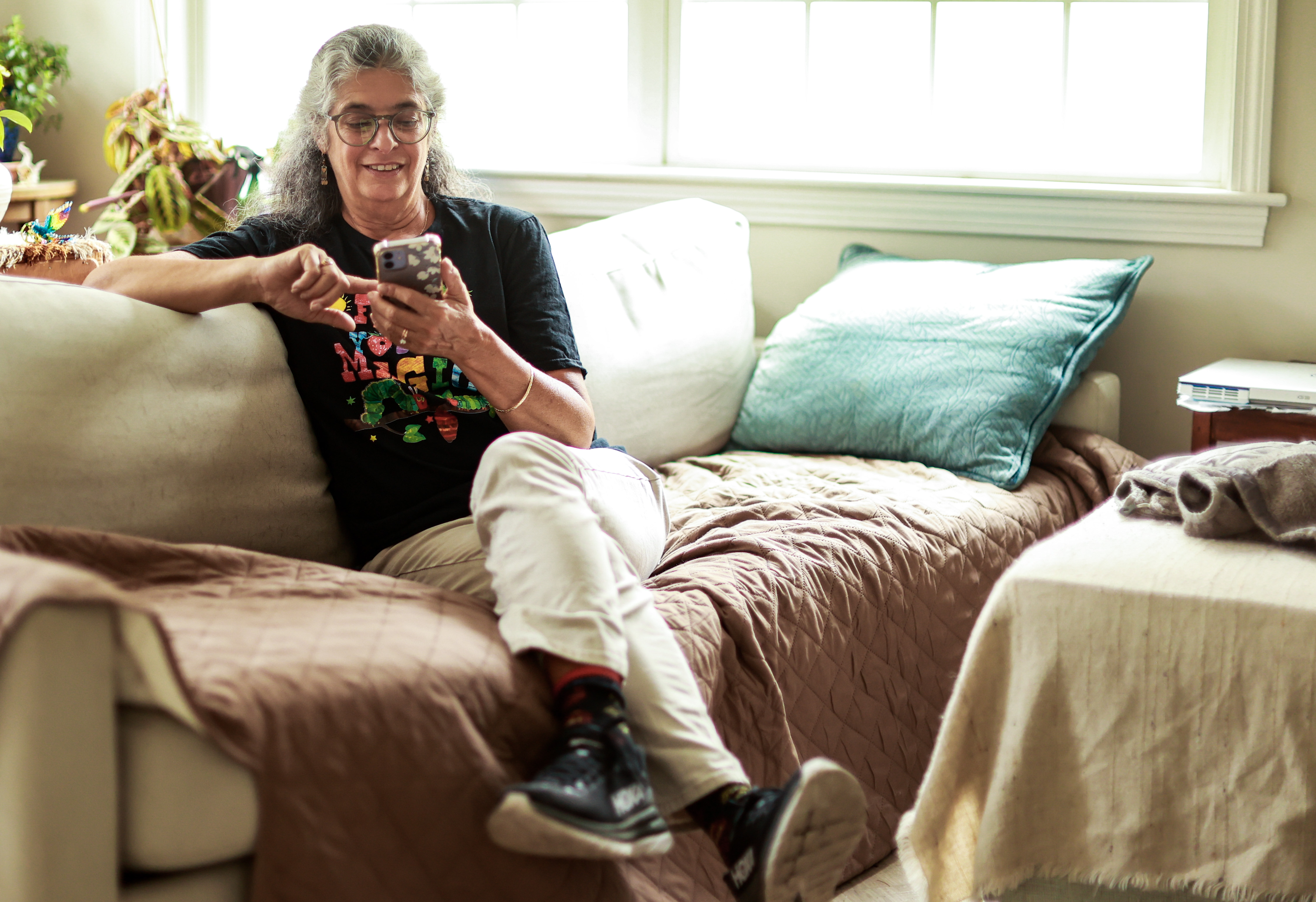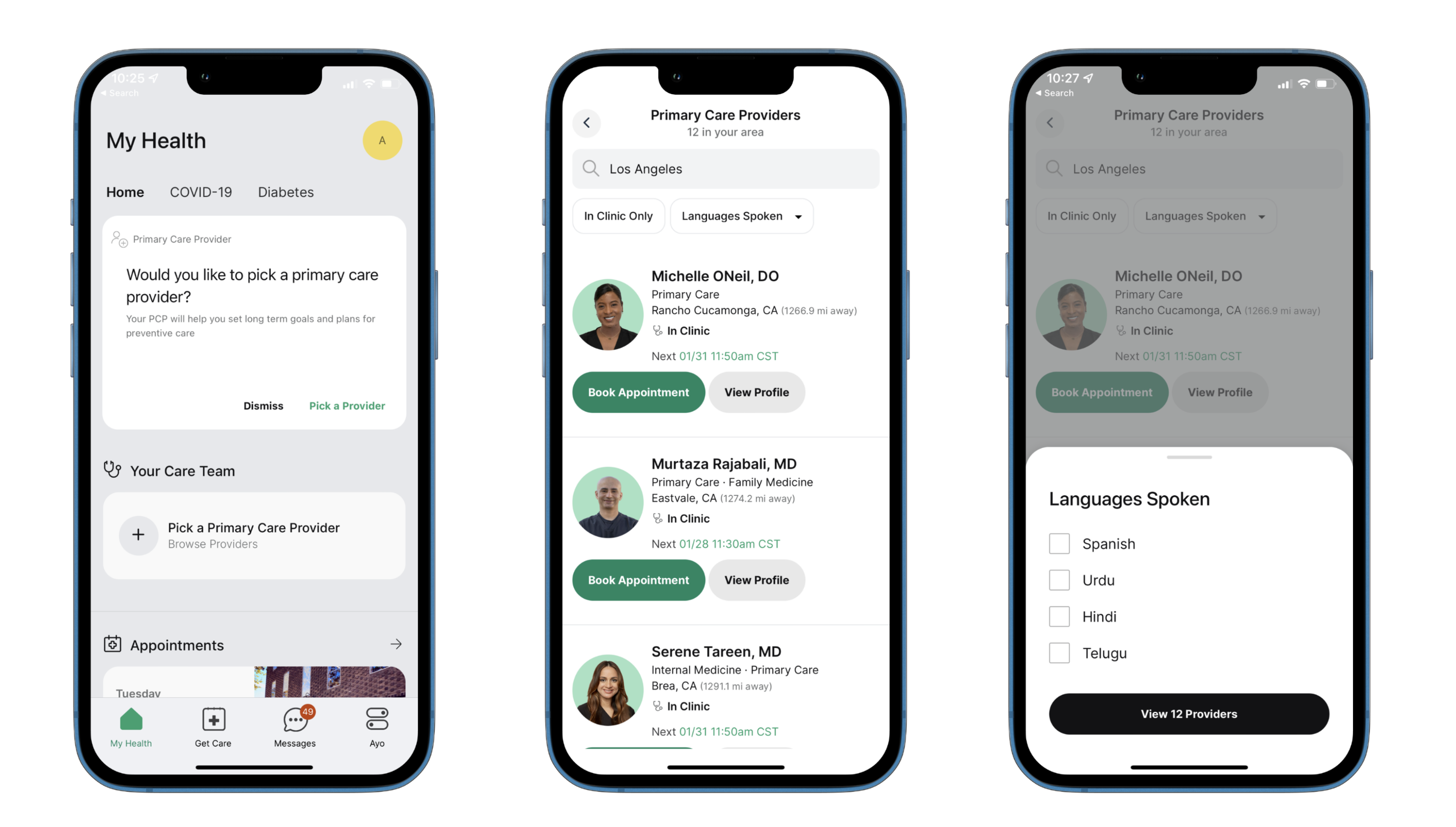Feb 15, 2024
Is a virtual PCP right for me?
In late January, Marjorie Massé began experiencing troubling health issues.
“I just wasn’t feeling like myself,” recalls the 64-year-old math teacher.
Seeking quick access to a primary care provider, Massé called her health plan for help. They suggested she sign up for a new virtual primary care service that’s offered to Blue Cross Blue Shield of Massachusetts members through the company’s collaboration with Firefly Health and Carbon Health.
The service offers patients access to a team of clinicians who provide comprehensive primary care visits via video, including mental health visits, as well as the ability to see in-network providers in person when needed.
Massé reached out to Firefly Health and scheduled a virtual appointment with a nurse practitioner later that same day.
“I was amazed that I got an appointment that day,” Massé said. “More than that, my nurse practitioner, Danielle, was extraordinary. She took a thorough medical history, identified other health issues for us to address in future visits, and gave me a referral to see a specialist.”

The specialist helped Massé figure out why she wasn’t feeling well, and her team at Firefly stepped in to help her manage her condition.
Two months later, Massé says she is sticking with Firefly.
“I thought I might go find an in-person doctor after my initial need was met, but Firefly has exceeded my expectations,” Massé said. “Their staff is extremely professional and exceptionally knowledgeable, and their response time is incredible.”
For the first time in a long time, I feel like I’m being treated as a whole person. I keep telling people that I have amazing health care in my back pocket

Marjorie Massé
Health plans including Blue Cross Blue Shield of Massachusetts have begun adding virtual primary care providers such as Firefly and Carbon Health to their networks in recognition of rising need, said Dr. Ashley Yeats, a physician who is VP of medical operations at the not-for-profit health plan.
“We want to make sure all our members have access to high-quality, affordable primary care because it is the foundation of good health,” he said.
How can a PCP help?
The benefits of having a primary care provider include improved health outcomes and a lower rate of growth of health spending. Patients with an established primary care doctor have fewer hospitalizations and lower rates of emergency department utilization. They report greater satisfaction with their care. They may even live longer lives.
Primary care providers often serve as their patients’ health care quarterback

Dr. Ashley Yeats
In addition to managing active health conditions, PCPs see patients for annual check-ups, conducting or coordinating preventive care, such as screenings for breast cancer and colorectal cancer. They can help patients get care for nearly any health problem and coordinate care among specialists, if necessary.
“PCPs also help patients manage conditions, such as asthma, COPD, diabetes and high blood pressure, through medication and lifestyle changes so they don’t turn into bigger health issues down the road,” Yeats noted.
And increasingly, PCPs are treating patients for common mental health conditions such as anxiety and depression.
The value of virtual
A nationwide shortage of primary care providers has left many Americans without a PCP, or experiencing delays in visits for routine care. That drives some patients to the emergency room for minor medical issues, or to forego needed care.
“There is a real opportunity now for virtual primary care not only to fill a gap but actually to change how care is being delivered for the better,” Yeats said, noting a wave of new digital health solutions and patients’ growing comfort with virtual visits.
For example, both Carbon Health and Firefly offer a team-based care model with a messaging feature and video appointments available for extended hours during the day and weekends, a transition to in-person care when needed, integrated mental health care, and appointments within 72 hours.

“Carbon Health patients are immediately paired with a ‘connected care guide,’ a medical assistant or trained health coach who works with them to establish care, set health goals, treat unexpected health issues, or schedule services like labs or screenings on site at nearby Carbon Health locations,” said Carbon Health Chief Medical Officer Dr. Sujal Mandavia.
Meanwhile, the Carbon Health mobile app allows patients to schedule appointments, request prescription refills, and view health records, Mandavia said. The app also bolsters patients’ ability to set meaningful health goals: Patients can log health information, such as pain level or mood, or key health measures like blood pressure or blood sugar.
We don’t just want to treat patients when they are sick. We believe primary care is about helping patients make progress toward everyday health goals such as better sleep, less stress or improved diet and nutrition

Dr. Sujal Mandavia
A new experience
Firefly Health Vice President of Clinical Dr. Nisha Basu says her organization, too, is working to transform people’s experience of the health care system.
“We’re changing people’s expectations of what health care can and should be,” said Basu, a primary care physician who describes the Firefly experience as “personalized, convenient and responsive.”
For instance, Firefly patients can choose their care team based on characteristics such as gender, background and language spoken.
They can schedule virtual appointments from 7 a.m. to 7 p.m. seven days a week from anywhere. “If a patient wants to have a visit in their car during their lunch break, that’s fine with us!” Basu said.
And like Carbon Health patients, Firefly patients can work with a “health guide” to make lifestyle changes in the areas of nutrition, exercise, sleep, weight loss, tobacco cessation and stress management, Basu said.
Virtual primary care is not for everyone, Yeats said, but “it has the potential to increase access for people from all backgrounds, which is an important first step in addressing and improving health equity.”
Basu agrees.
We have found that our model offers flexible access to care for a broad range of people – patients who work, have kids, live in cities or rural areas, patients who are healthy or have several complex conditions. We figure out what each patient needs, and we make it happen

Dr. Nisha Basu

